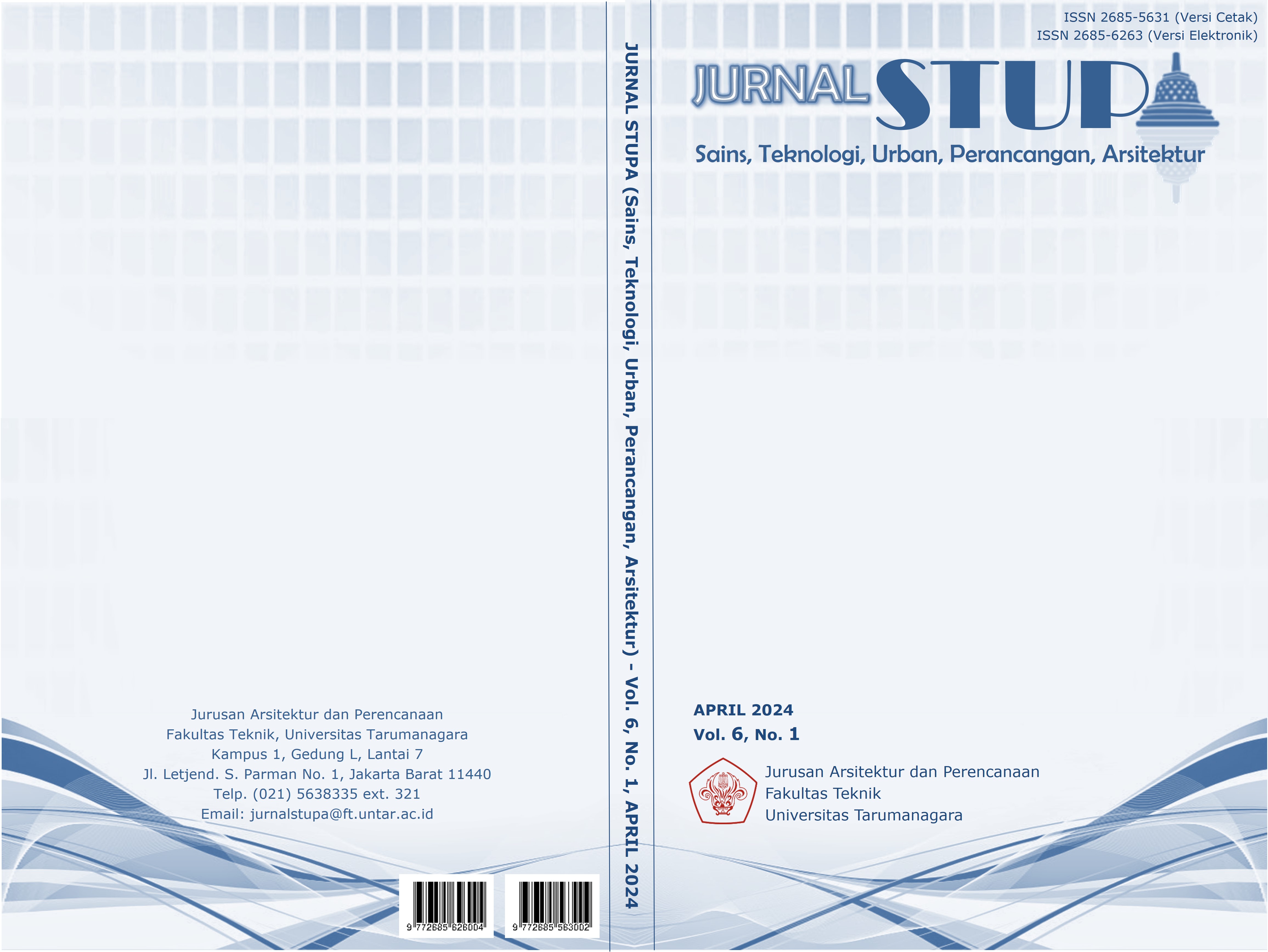MEDALI RELASI ANTARGENERASI
Main Article Content
Abstract
Intergeneration relationships have a distance that is created unconsciously from everyday life. Identical to the existence of different views, there is a clash that results in an intergeneration gap. Often referred to as the generation gap, it is a condition created due to differences in experiences and attitudes between generations, which ultimately results in a gap or distance. A bridge is needed to unify intergeneration perceptions, making each generation cherish each other and coexist. Play is then considered to be one of the ways that can bridge the intergeneration gap that has been created to date. In a game there are various goals, victory being the most commonly encountered goal. Trophies or medals are identical as a form of appreciation for winning a competition or game. Like playing, it is hoped that there will be a game of definition from the appreciation for victory. No longer in the form of physical things like medals but in the form of intergeneration relationships. Qualitative and comparative data collection methods from a collection of journals and books. The target of this research is to show the positive side of playing together between generations, in order to strengthen intergeneration relationships.
Keywords: Cherish; Coexist; Intergeneration; Playing; Strengthen
Abstrak
Hubungan antargenerasi memiliki jarak yang tercipta tanpa disadari dari kehidupan sehari-hari. Identik dengan adanya perbedaan pandangan, terjadi benturan yang mengakibatkan kesenjangan antargenerasi. Sering disebut dengan kesenjangan generasi atau generation gap yang merupakan suatu kondisi yang tercipta karena adanya perbedaan pengalaman dan sikap antargenerasi, sehingga pada akhirnya menghasilkan kesenjangan atau jarak. Diperlukan jembatan untuk menyatukan persepsi antargenerasi, menjadikan setiap generasi saling menghargai dan hidup berdampingan. Bermain kemudian dianggap menjadi salah satu cara yang mampu menjembatani kesenjangan antargenerasi yang telah tercipta hingga saat ini. Dalam sebuah permainan ada berbagai tujuan, kemenangan menjadi tujuan yang paling sering ditemui. Piala ataupun medali identik sebagai bentuk apresiasi akan kemenangan atas suatu perlombaan atau permainan. Layaknya bermain, diharapkan terjadi permainan definisi dari bentuk apresiasi kemenangan. Tak lagi berupa hal fisik layaknya medali namun berwujud atas terjalinnya hubungan relasi antargenerasi. Metode pengumpulan data kualitatif dan komparatif dari kumpulan jurnal dan buku. Target penelitian ini agar dapat menunjukkan sisi positif dari bermain bersama antargenerasi, demi mempererat hubungan antargenerasi.
Article Details
Section

This work is licensed under a Creative Commons Attribution-NonCommercial-ShareAlike 4.0 International License.
This work is licensed under a Jurnal Sains, Teknologi, Urban, Perancangan, Arsitektur/ STUPA Creative Commons Attribution-NonCommercial-ShareAlike 4.0 International LicenseReferences
Aniq, R. (2012). Pengaruh Permainan Tradisional Gobag Sodor Terhadap Tingkat Empati Anak. Retrieved from http://etheses.uin-malang.ac.id/id/eprint/2176
Beresin, A. R. (2014). The Art of Play. Philadelphia: Temple University Press.
Botton, A. d. (2006). The Architecture of Happiness. New York: Vintage Books.
Brown, C. T. (2018). Human Development: Equipping Minds with Cognitive Development. New York: Nova Science Publishers, Inc.
Brown, S. C. (2009). Play: How It Shapes the Brain, Opens the Imagination, and Invigorates the Soul. Canada: The Penguin Group.
Budi, H. I. (2021). Minimalisir Konflik dalam Gap Generasi Melalui Pendekatan Komunikasi Interpersonal.
DeBenedet, A. T. (2018). Playful Intelligence: The Power of Living Lightly in a Serious World. Solana Beach, California: Santa Monica Press LLC.
DeMello, K. (2016). Healing through Design: The Psychological Effects of Design on the Elderly. (Doctoral dissertation, [Honolulu]:[University of Hawaii at Manoa],[December 2016]).
Elkind, D. (2007). The Power of Play: Learning What Comes Naturally. Da Capo Lifelong Books.
Hasyim, M. A. (2023). Analisis Pengaruh Kesenjangan Generasi terhadap Kualitas Kerja Karyawan di dalam Perusahaan.
Hendricks, B. E. (2011). Designing for Play. Ashgate Publishing.
Lase, D. D. (2020). Pembelajaran Antargenerasi Untuk Masyarakat Berkelanjutan: Sebuah Kajian Literatur dan Implikasi. Jurnal Ilmiah Ilmu Sosial, 6(2), 89-103
Mariyati, L. I. (2021). Psikologi Perkembangan Sepanjang Kehidupan Manusia. Sidoarjo: UMSIDA PRESS.
McAdams, D. P. (2019). Handbook of Personality Development. New York: The Guilford Press.
Mulyawati, Y. A. (2022). Pengaruh Empati Terhadap Perilaku Prososial Peserta Didik Sekolah Dasar.
Pallasmaa, J. H. (2015). Architecture and Empathy. Finland: Tapio Wirkkala-Rut Bryk Foundation. doi:ISBN: 978-0-692-53919-4
Patel, M. N. (2019). Exploring Research Methodology: Review Article. IJRR : International Journal of Research and Review. doi:https://doi.org/10.4444/ijrr.1002/1004
Purwana, D. U. (2023). Analisis Komparatif Perilaku Komunikasi Verbal di Tempat Kerja Antara Generasi X dan Y di Gerai Pelayanan Operator Seluler Wilayah Priangan Timur.
Putra, D. &. (2018). Architect and Empathy: The Importance of Human Experience in Architectural Design. International Journal of Built Environment and Scientific Research. doi:https://doi.org/10.24853/ijbesr.2.1.47-54
Putra, Y. S. (2017). Theoritical Review: Teori Perbedaan Generasi. Among makarti, 9(2).
Qonitatin, N., Faturochman, F., Helmi, A. F., & Kartowagiran, B. (2020). Relasi remaja–orang tua dan ketika teknologi masuk di dalamnya. Buletin Psikologi, 28(1), 28-44.
Sicart, M. (2014). Play Matters. Cambridge: The MIT Press.
Stephan, C. S. (2020). “Focus on the Users”: Empathy, Anticipation, and Perspective-taking in Healthcare Architecture. UCLA Electronic Theses and Dissertations. Retrieved from https://escholarship.org/uc/item/5f7187wj
Sukamti, E. R. (2018). Perkembangan Motorik. Yogyakarta: UNY Press.
Thahir, A. (2020). Psikologi Perkembangan. Yogyakarta: Pustaka Referensi. Retrieved from http://repository.radenintan.ac.id/id/eprint/11010
Walz, S. P. (2010). Toward a Ludic Architecture The Space of Play and Games. Zurich: ETC Press.
Wang, Q. (2016). Emotional Architecture for Everyday Life. Architectural Design for Senior Living Oriented by the Psychological Pattern of Elderly People. Diposit Digital de la Universitat de Barcelona. doi:http://hdl.handle.net/2445/104275
Winangsih, W. L. (2018). Meningkatkan Sikap Empati Melalui Metode Mendongeng pada Anak Usia Dini.

